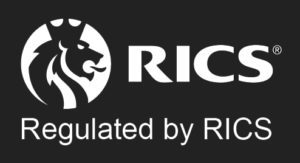Budget 2016 Overview
GDP is expected to grow by 6.2% this year, putting Ireland on track to be the fastest growing economy in the European Union for the second consecutive year. This strong performance is forecast to continue into 2016 when we should see the economy grow by a further 4.3%. The economic performance alone shows that Ireland’s recovery is well underway, and allowed the Government to deliver a very positive budgetary reforms this year with a range of tax cuts and spending worth an estimated €1.5bn. Key points as follow:
Universal Social Charge
The Universal Social Charge (USC) entry threshold the will increase from €12,012 to €13,000. There will be cuts to all three levels of the USC. The top rate will drop from 7% to 5.5% for income earned in excess of €18,668 up to €70,044. The 3.5% rate will be reduced to 3% for income from €12,012 to €18,668, while the bottom rate of 1.5% will drop to 1% for the first €12,012 of income earned. These cuts mean the marginal rate of tax will be 49.5% for all people earning under €70,444.
Self-employed and Small Business Owners
An earned income tax credit to the value of 550 is to be introduced for small business owners and the self-employed.
Employment
The Government expects to recover all jobs lost throughout the downturn by 2020, with unemployment expected to drop to 6.25% by 2021.
The statutory minimum wage is to be increased from €8.65 to €9.15 per hour from January.
A new tapered PRSI credit is to be introduced with a maximum level of €12 per week or €624 per year. This change is to ensure that low income earners see a significant improvement in net incomes. For employer PRSI, the entry point to the top rate of 10.75% will be increased by €20 to €376 per week.
Children
Child benefit is set to increase by €5 per month. An extension of the Early Childcare and Education scheme will see free childcare for children between 3 and 5.5 years, while free GP care is to be extended to all children under 12 years of age.
Old Age Pension
The old age pension will increase by €3 per week from January.
Housing
NAMA is to deliver a target of 20,000 residential units by 2020, 90% of which will be in the Greater Dublin Area. This will require funding of €4.5bn, but will not compromise NAMA’s debt repayment commitments. About 75% of these units will be houses, mainly starter homes. There is also an increase in the current allocation for the provision of homeless services by an additional €17m.
The revaluation of homes for Local Property Tax is to be postponed from 2016 to 2019, meaning that rising property values in recent years will not mean rising property taxes just yet – a welcome and important change.
According to the SCSI, the Government has missed a prime opportunity to fix housing sector issues in Budget 2016. The Society said the lack of direct measures to improve the commercial viability of new home building and increase the supply of housing was deeply disappointing. The Government’s Housing Agency has previously stated that 21,000 units per year will be needed and far this year just 7,000 units have been built nationwide. The lack of direct action means that more people will continue to struggle to afford to buy and rent property in a market constrained by severe shortages in supply.
Retail
There is some concern that not enough has been done to offset the cost of minimum wage increases to retailers. This may disproportionately impact the retail sector, where labour costs make up a large proportion of the cost base. Retail Ireland chief Thomas Burke said the reduction in employer’s PRSI is simply not enough to encourage the creation of new jobs.
The introduction of earned income tax credits will benefit small business owners, including small retailers. Measures to bring Irish card payments closer to European standards have also been introduced and should greatly reduce the cost for retailers associated with accepting card payments. A new EU regulation will halve transaction fees faced by retailers to 30 basis points for credit cards. Budget 2016 sees the corresponding fee for debit cards reduced to 10 basis points. The €5 stamp duty on debit/ATM cards will also be removed and replaced with a reduced charge of 12c per ATM transaction in order to encourage and incentivise greater use of card payment by consumers.
Positive budgetary measures should provide an extra boost to consumer confidence ahead of the all-important Christmas retail period. Reductions in taxation and USC, along with rising unemployment and increases in minimum wage should leave customers with more money to spend, which should have a knock-on effect on retailer turnovers next year.





